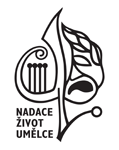In comparison with the Czech one, the Polish festival scene is a step ahead. OFF Festival in Katowice belongs among those traditional and most interesting festivals worldwide. Partly, it's because of Artur Rojek, its artistic director who's also a performing musician. In this interview, we are discussing how it is to combine these two roles together, what he thinks about the Czech scene, and about his sentiments.
Let’s start in general: What would you say about this year’s OFF edition? What will be the differences/similarities in comparison with past years?
Each edition is different from the one before because I’m constantly changing. Sometimes I need to keep myself under control, and at other times I just need to let go. There are a few subtle differences: there are more women in the lineup, for instance, there’s a new stage devoted entirely to Polish electronic music, and we’ve launched a contemporary art collaboration with the Silesian Museum. There was a different impetus behind each of these changes. We didn’t specifically intend to increase the number of women performing at the festival. I don’t categorize music as male or female. The artistic merit of the music is what matters to me.
This year, OFF will be held in Katowice for the 8th times. What kind of symbiosis is there between OFF and Katovice after this period?
For its first four years, the festival was held in my home town, Mysłowice. The festival scene in Poland was in its early stages, and the municipal government was only beginning to learn how to deal with such events. But that’s no excuse for the cruel and irresponsible actions of local politicians, who started exploiting the festival — the most widely-covered event in their city at the time — as leverage in their power struggles. The growing popularity of the OFF Festival in Poland and abroad drew increasing international attention to a city that, up until then, was best known as the home of Poland’s first firefighting museum and the band Myslovitz, which I founded, by the way. They could have taken advantage of that opportunity and added a modern chapter to the city’s history. Sadly, there were more stupid people than smart ones in the municipality, and I had no choice but to pack up the festival and move it to Katowice.
Katowice gave us the stability we needed. We became a part of the city’s new promotional campaign, which puts a great emphasis on culture, music and festivals. Their consistent approach won Katowice the title of UNESCO City of Music, and this year the city will host Womex, the prestigious world music expo.
Since its move to Katowice, the OFF Festival has really made a name for itself in the international music world. In 2012 OFF won the title of Best European Festival. In 2014 TIME Magazine ranked us among the world’s top 14 festivals to check out. This year the Guardian put us on a similar list of the best festivals in Europe. Over ten thousand alternative music fans show up at the OFF Festival every year.
There is a lot of space for Swans/Michael Gira this time, including Gira’s curatorship of the experimental stage. Is there any special relationship between OFF and Gira?
Swans have played the OFF Festival before, in 2012, but that was right before the release of The Seer, which came out two weeks later, on August 28, marking the beginning of a new era in the band’s artistic journey. We’ve invited them back for several reasons.
1. Since their last OFF Festival appearance, Swans have released The Seer, To Be Kind and The Glowing Man, all of which have been hailed by music critics as masterpieces and have ended up on most year-end lists. The return of Swans is a chance to sum up that period.
2. In 2012 we shut off their power because they ran over time, making it impossible for Christian Fennesz, the curator of the Experimental Stage, to start his own show. We asked them to wrap it up several times, but Michael Gira was in such a trance that you just couldn’t get through to him. We’re one of only a handful of festivals that have interrupted a Swans show. I thought it was going to turn into a huge argument, but in the end, Gira announced that it was the best show Swans had played in years. That’s why they’re playing a 150-minute concert this year.
3. The Glowing Man is the final album by Swans in their current lineup. This is going to be the only Swans concert in Poland this year, and the last one before they change their format. We’re in for a change.
4. Michael Gira accepted my invitation to curate the Experimental Stage. That’s not a new challenge for him. He also curates a project of his own, Mouth to Mouth.
How this curatorship tradition works actually? Does artist/label only put his/its name on it as a "sticker" because (s)he/it likes the program or is (s)he/it actively involved in choosing artists for the programme?
It depends. Christian Fennesz relied on me to suggest artists. I gave him a list of over a dozen and he used it to create the lineup. Glenn Branca chose the foreign acts and went with my suggestions when it came to Polish bands. Gira, on the other hand, was responsible for everything from start to finish. He would get pissed off if I even tried to suggest something. Even the Polish lineup was his choice, which I found very impressive.
OFF is also known for cooperation with KEXP and other music platforms. How this affects the dramaturgy of festival? How many people create the dramaturgy of OFF Festival at all?
KEXP is one of the leading institutions in the world of alternative music. Our collaboration with the station stems from that fact, as well as from my love for Seattle and my friendship with Sub Pop’s Jonathan Poneman. It started when Cheryl Waters, one of the DJs at KEXP, came to the OFF Festival with the Sub Pop crew. She fell in love with our country and went home to Seattle with tons of enthusiasm and a few new favourite Polish bands. We met a few times after that. I go to Seattle regularly.
The institution responsible for promoting Polish music abroad is the Adam Mickiewicz Institute. They once told me that their dream was to send Polish musicians across the ocean to tour the US, where they could also drop by KEXP and take part in the station’s legendary video sessions.
As it happened, I later attended the KEXP anniversary party and saw Mudhoney play a show on top of the Space Needle, where I met the station’s director, Kevin Cole. We met again a year later and that’s when I proposed that we start a collaboration like the one KEXP has with Iceland Airways. And KEXP said yes. In 2015 they shot ten video sessions, eight of which featured Polish bands. That’s how the world learned of the existence of such artists as Hańba, Coals and Sutari.
The atmosphere of the festival is shaped by everyone involved: us as the organizers, the artists, our audience, and the media that write about us and showcase the event. We still have a lot to do in that respect.
In a world where the packaging is becoming more important than the content, we need to start taking a more multifaceted approach to the festival.
Polish scene gets more and more attention in foreign countries. Artists such as Zamilska, Brodka, Jacek Sienkiewicz, Stefan Wesolowski, Resin etc. are well known in the UK for example. What do you think? What is the main reason that Polish scene is one of the most successful from the whole "Eastern Block"?
It’s because of the bands’ ambition, more than anything else. Their hard work and their drive to make it outside of Poland. Without that, they don’t stand a chance of pushing forward.
But there are two other important factors: the work done by the Adam Mickiewicz Institute, which is responsible for promoting Polish culture abroad, and the popularity of Polish music festivals, which draw journalists and audiences from all over the world. One good example is our collaboration with KEXP Radio. KEXP is going to be streaming the OFF Festival this year and they’ll be making announcements to people all over the world about what’s going on at the festival.
It is not usual that art director of the festival is an active part of festival’s programme, too. How difficult is it to harmonize these two roles?
I’ve gotten used to it. I don’t do it too often, and I haven’t made a habit of it. I do it whenever I have something to say.
That’s an extension of my collaboration with Kwadrofonik, which started in 2015 when we performed together at the Polityka cultural awards ceremony. I joined the intriguing quartet — which features two pianos, a marimba and percussion instruments — on stage to perform two songs off my 2014 solo album. We were pretty happy with the joint project and started planning more stuff. That’s how we came up with the idea of performing Industrial Symphony No. 1.
How do you feel about the return of Twin Peaks and why have you decided to perform Badalamenti’s symphony?
And it just so happens that Twin Peaks is back, and Jamie Stewart of Xiu Xiu and Lawrence English are performing a soundtrack to a David Lynch film (an act that Gira chose for his own stage), so there’s a lot of buzz around Lynch this year.
This year, OFF accents female artists and their strength a lot. What do you think about gender problems and chauvinism in music/music industry?
I mentioned that earlier. Gender doesn’t play a role in my lineup choices. When I think about gender, I think about equality. The large number of women in this year’s lineup is a result of their artistic merit and not some attempt to show that they’re more important than men. The only division I consider is the one between stupid people and smart people.
How difficult is to fund the OFF in present? There was a withdrawal of main sponsors in the past, I´ve also heard that after PiS won the elections, support of culture is even worse… Is this a problem for OFF or does it, paradoxically, helps it to achieve its "alternative values and thinking"?
We live in peculiar times, and I don’t just mean in Europe. I try to steer clear of politics because that’s an arena where everyone pursues their own interests. I have views of my own, and there are things I support and things I’m against, but that doesn’t necessarily mean I have to be public about it.
My strength lies in my knowledge of music. I focus on artistic merit and give a platform to artists. In my everyday life, I prefer the company of people who are wiser than I am.
You have established the cooperation with Colours of Ostrava and Pohoda Festival. What are the main reasons for that?
The reason I wanted to work more closely with you is that I know you, as a nation, love music — everything from simple drinking songs to more artistically challenging music. I’ve always been impressed by you. My favourite bands would perform in Prague more often than in Warsaw in the years right after the fall of Communism. Hence my collaboration with Ostrava. In the case of Pohoda, there’s also the fact that I’m friends with Michal Kaščák (artistic director of Pohoda, editor's note), who’s a cool guy.
Is there any reason why Czech's and Slovak's artists absent in OFF´s programme for such a long time? Do you have any knowledge about Czech and Slovak scene? What do you think about it?
There’s no particular reason. I think you have lots of interesting music, and that’s always been the case. I remember the thrill I got when I read reviews of Ecstasy of St. Theresa in Melody Maker or when I saw the band Toyen on the UK show 120 minutes, which, for me and any my friends in the 90s, was the bible of musical knowledge.
That’s going to change, and we’ll see more artists than just Midi Lidi and DVA, who have performed at the OFF Festival (and both of whom were great). Thanks for pointing that out. Now I feel like I have something to prove.
What concerts are you looking forward to the most? And why?
Music is one of the most important things in my life. I put a lot of emotion into organizing the festival. Too much emotion, sometimes… That’s because of the delicate nature of programming an event like this: I can’t afford to include any random artists. It’s hard to pick out just one concert because every single element of the program is important to me, from Siksa to Swans. But if I were to choose a show based on sentimental value (because I do get sentimental and often revisit music I loved in the past, as I did with performances by My Bloody Valentine, Primal Scream, Ride, House of Love, Slowdive and Mazzy Star), this year it would be Arab Strap. Their album Philophobia, along with the first record by Tindersticks, had a formative influence on my music taste and instilled in me the conviction that the most beautiful songs are the sad ones.






